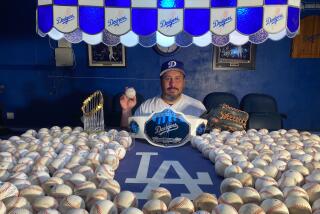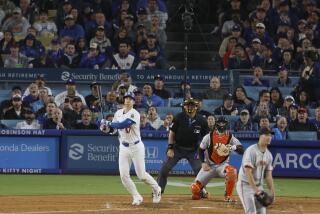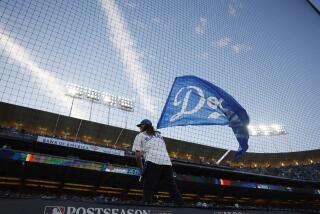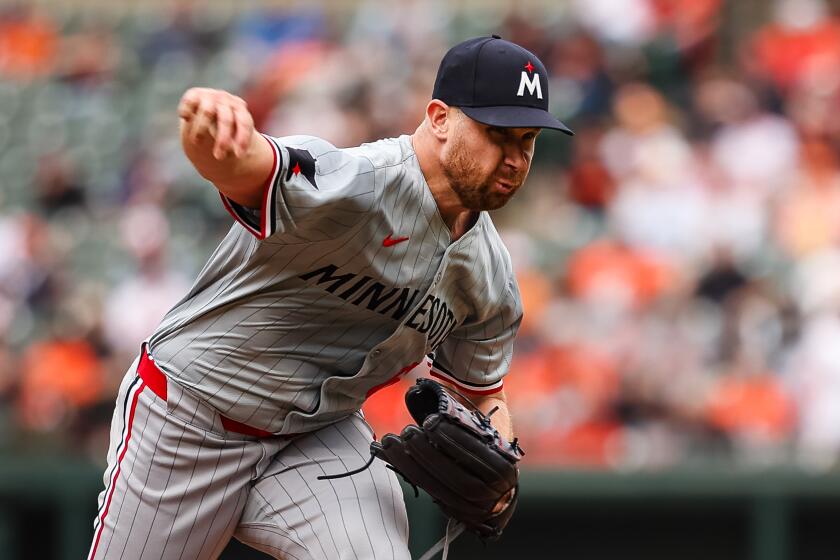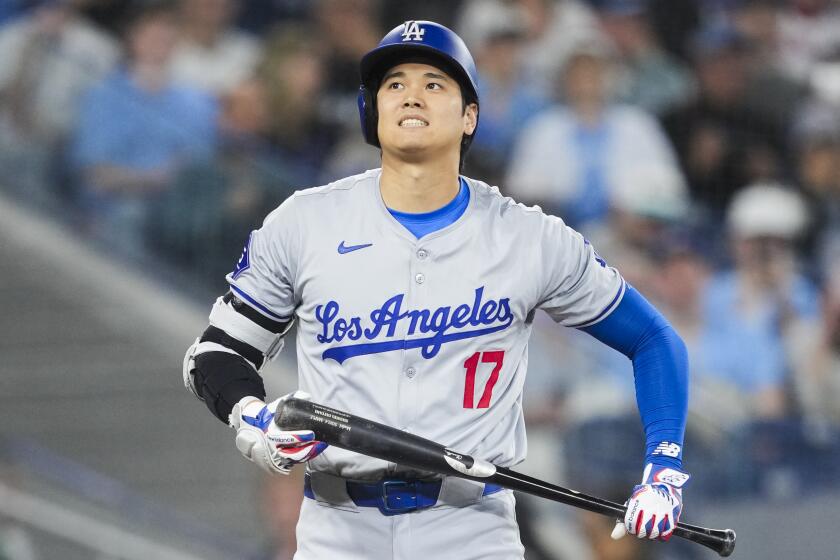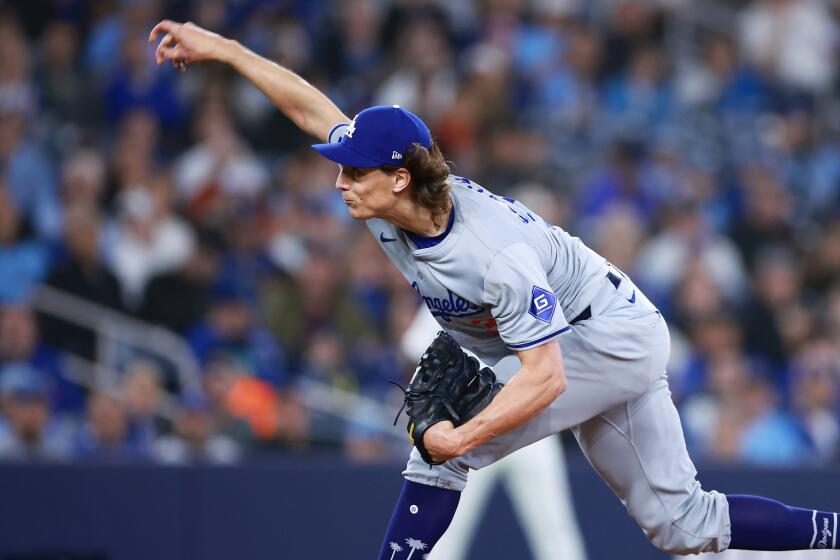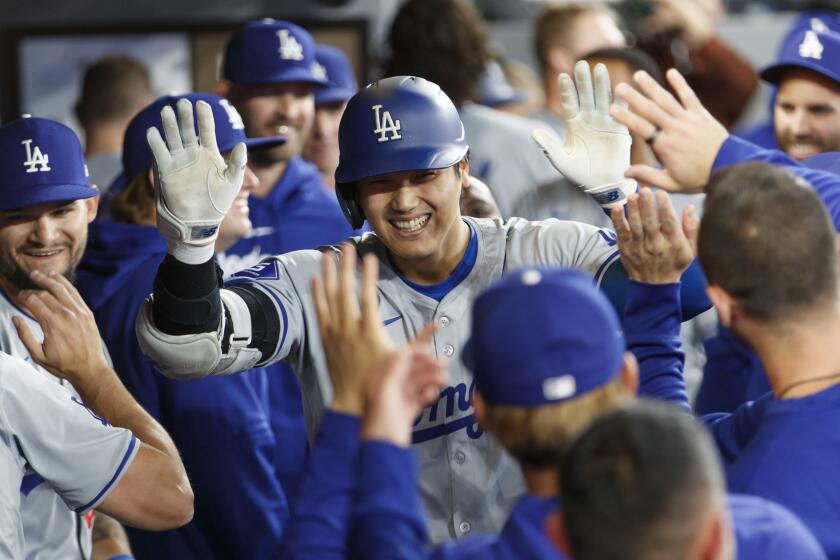Column: Manny (Ramirez) is still being Manny, but it’s not nearly the same
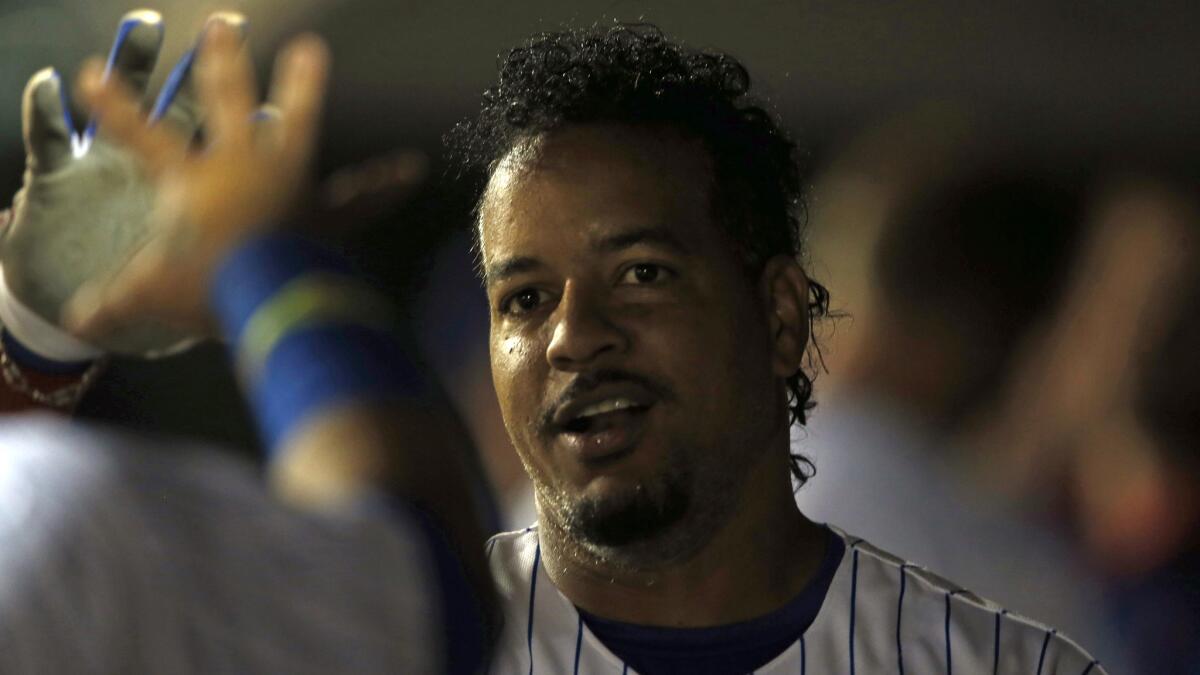
He still knows how to make an entrance, five minutes before first pitch, popping out through a door in the left-field fence.
As the loudspeaker at Principal Park fills the suffocating heat with “Who Let the Dogs Out,” Manny Ramirez swaggers toward home plate barking and smiling. A smattering of children crush together above the dugout, arms extended in a distant embrace, voices shouting questions in hopes of receiving some sort of recognition from the great man. Ramirez glances up quizzically, says a few words, and keeps striding until he disappears down the steps.
“Dad!” one crestfallen lad says to his father. “He doesn’t speak English!”
Manny Ramirez still knows how to make an entrance, which only increases the 90-degree chill that settles here three hours later when it becomes apparent he has lost all ability to make an exit.
In the seventh inning of a game between his triple-A Iowa Cubs and the New Orleans Zephyrs, Ramirez, 42, leaves his usual spot on the bench to approach the plate as a pinch-hitter. The several thousand fans who have been sitting quietly for most of the night are standing and cheering. There is a palpable buzz that increases when Ramirez drops into his trademark crouching stance and unleashes two of his reckless swings. Yet both times he is late, very late, fouling off two pitches before striking out on a check swing on a curveball that leaves him frozen and bewildered.
The crowd is stunned silent, then grows loud again with the clanging of stadium seats as fans turn their backs and scamper up the steps to the parking lot. Ramirez slowly retreats to the dugout, still clutching his bat. For the remainder of the inning he walks back and forth in front of the bench, gripping, waving, searching.
Long after the game, standing on the field outside the Cubs clubhouse, Ramirez is still searching. His tired face is dogged with gray hairs that curl around his neck and sprinkle through a Mohawk haircut that has long since replaced his dreadlocks. His worn arms fit neatly inside a loose and colorful sport shirt. He looks impossibly small for someone who was once such a giant. He sighs.
“This is hard,” he says, in his usual perfect English.
::
As baseball’s annual nonwaiver trade deadline approaches this week amid great debate over whether the Dodgers should risk dealing prospects for a star, it is perhaps instructive to remember the time they gave up two anonymous kids for the thrill ride of their lives.
On July 31, 2008, Hollywood became Mannywood.
Manny Ramirez, an eccentric former World Series MVP, was handed to the Dodgers by a Boston Red Sox team that could no longer tolerate him. Ramirez jetted into town and held his first news conference not in the usual stadium club, but outside, behind home plate. He announced he would be wearing the Wayne Gretzky-sized number 99. He fibbed about cutting his dreadlocks. He was hugged by some late-night TV talk show sidekick. The circus was on.
At the plate, he was incredible. It was baffling, nobody could get him out. He hit 17 homers and drove in 53 runs in just 187 at-bats over the season’s final two months, nearly winning the National League MVP award for one-third of a season. He led the Dodgers to their first playoff series victory in 20 years and took them to within two wins of the World Series with an amazing .520 average in the postseason.
Off the field, it was overwhelming, he was adored like no Dodger since Fernando Valenzuela. He sparked the creation of a Dodger Stadium section known as “Mannywood” while inspiring thousands of otherwise ordinary folk to walk around Los Angeles wearing Dodgers caps and fake dreadlocks.
Then, on May 7 of his second season here, the Dodgers announced it was all one big lie. Ramirez was suspended for 50 games for violating baseball’s drug policy amid indications that he was using steroids. The banned medication was a women’s fertility drug. The jokes were rampant. The Dodgers were cooked. Ramirez returned later in the season to huge applause from forgiving fans, but he was never the same hitter, and the only stir he caused in the Dodgers’ second consecutive appearance in the National League Championship Series against the Philadelphia Phillies by disappearing into the shower during the final competitive innings of the fourth game.
“Man ain’t the same without his medicine,” one Dodger famously observed, and, after enduring an injury-riddled third summer here, Ramirez was waived and claimed by the Chicago White Sox for the final month of the 2010 season.
His departure from Chavez Ravine was the beginning of a spiral into more deceit, desperation and, ultimately, irrelevancy. He moved from the White Sox, to the Tampa Bay Rays, to a 100-game suspension for reportedly failing another steroids test, to retirement, to an arrest on a domestic battery charge that was later dropped, to un-retirement, to the Oakland minor league system, to the Dominican league, to Taiwan, to Texas’ minor league system. Finally, he has ended up in Iowa, where in May he was signed by Chicago Cubs president and former Red Sox executive Theo Epstein to a player-coach contract with no possibility of being recalled to the big leagues.
“You move on, bro,” Ramirez says. “You fall, you get up, you move on.”
In this 23rd summer of his professional career, it appears as if he’s in the middle of one big and final fall. Earlier in the day he awoke with his teammates in the middle of Texas at 4 a.m. He sat in the back of two Southwest Airlines flights before arriving in Des Moines shortly after noon. He came to the park a few hours later knowing he would sit on the bench with, at most, only one brief chance to hit.
The glitzy Mannywood has been replaced by a quaint stadium where, between innings, club workers shoot wrapped hot dogs into the stands and kids compete in a contest that involves throwing fake pork chops into a grill. Ramirez dramatically and surprisingly hit a homer in his first game at Principal Park, but in 34 at-bats he has only five other hits, none for extra bases, a dozen strikeouts, only one walk and a .176 average, and he doesn’t play enough to find the timing that will ever allow him to improve those numbers.
“What I do every day is tough,” Ramirez says. “So tough.”
It used to seem so easy. Ramirez smiles when a Los Angeles reporter reminds him of his most Hollywood Dodgers moment, in July 2009, when he came off the bench in the sixth inning and powered the first pitch from Cincinnati reliever Nick Masset into the corner of the Mannywood section for a pinch-hit grand slam on Manny Ramirez bobblehead night. Judging strictly by a tumultuous crowd roar that is still remembered today, it was one of the most dramatic home runs in Dodger Stadium history.
“You know what the crazy thing about that home run was?” Ramirez says. “I didn’t take batting practice, no swings, nothing, I just show up and hit it.”
He shakes his head and lowers his voice.
“I just can’t do that anymore,” he says.
If they were standing next to Ramirez during this vulnerable moment, longtime Dodgers fans probably would be split into two groups. The larger group would probably want to hug him and thank him for two of the most purely fun seasons in recent Dodgers history. The other group would want to scold him for turning it all into a hoax.
“I loved those years, I loved Los Angeles, what a great place to play, those fans were awesome to me, every day the place was packed, just an incredible experience,” he says brightly.
But when asked if he has any regrets, his mood darkens.
“No, no regrets,” he says. “If none of that would have happened I would not have gotten to know the Lord and change my ways. Everything is for a reason.”
Yeah, but considering that he recently made a public apology to longtime Boston Red Sox traveling secretary Jack McCormick for knocking him to the ground many years ago, couldn’t he apologize to Dodgers fans for compromising what could have been the seasons of a lifetime?
“I still had to hit the ball, and hit it off a pitcher who maybe was using steroids, so you just don’t know what happens,” he says. “I can’t change what I did, I can only look at what I do now.”
Yet many wonder what exactly he is doing now. Why does he continue to attempt to play in a sport where he has become more sideshow than star? He says he is not preparing to be a full-time coach. He says he understands he will never hit his way back to the major leagues. He is stuck in purgatory between playing and retiring, and he knows it.
“I just love watching and helping guys, I just try to come in and enjoy every day,” he says. “I know my role and put my faith in God.”
Some members of the Iowa franchise think he wants to mentor highly regarded prospects like Javier Baez and Kris Bryant as a way of paying back a game that he often treated with such disrespect. Others think that, since he became a born-again Christian several years ago, he wants to show the world he has been yet another misunderstood star.
“What he has presented to us, what he has lived, is a guy who has realized he has made some mistakes and is trying to correct some of that,” says Randy Wehofer, the club’s director of media relations and broadcaster.
If so, then why won’t he show even the smallest amount of remorse to the Dodgers and their fans?
“What happened in Los Angeles is a moment I wouldn’t trade for anything,” he says.
Several years later, however, that moment has been traded for life at the end of a bench, at the end of a night, at the end of some kid’s 95-mph fastball, followed by a long walk to a triple-A clubhouse wedged behind an outfield fence.
The interview ended, Ramirez politely shakes hands and disappears back through that fence. The next night, he will be summoned as a pinch-hitter again, and will strike out again. A day later, he will be placed on the disabled list because of a right calf strain, meaning he must still endure the difficult team travel but with zero chance to play.
Yet he doesn’t quit. He won’t quit. What was once his catchphrase has now seemingly become his curse. Manny cannot stop being Manny.
Twitter: @billplaschke
More to Read
Are you a true-blue fan?
Get our Dodgers Dugout newsletter for insights, news and much more.
You may occasionally receive promotional content from the Los Angeles Times.

